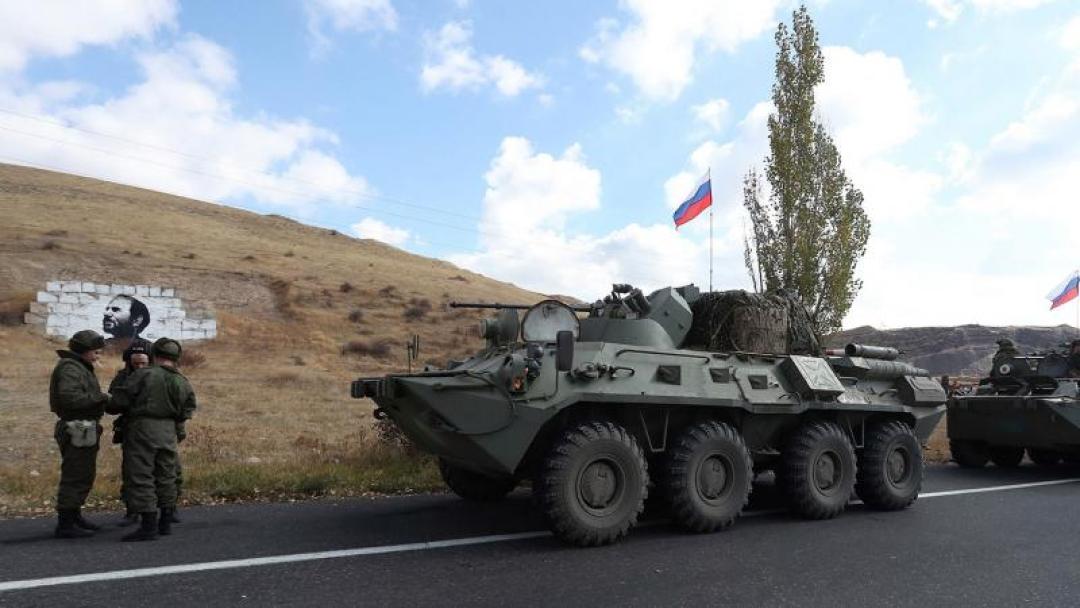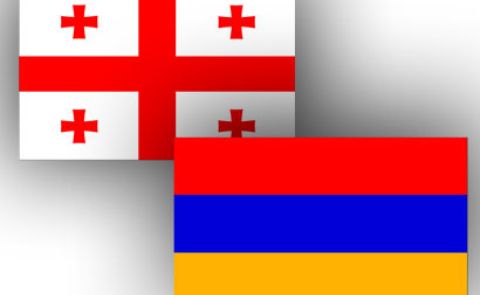
From Cracks to Fractions in the Alliance: Armenia and Russia Drift Further Apart

In a significant shift in the South Caucasus, Armenia has requested and Russia has agreed to withdraw Russian military troops from Armenia’s only border checkpoint with Iran as of January 1st, 2025. In July 2024 already, Russian Federal Security Service (FSB) border guards ended their 32-year presence at the Armenian capital’s Zvartnots International Airport. The decision, driven by Armenia’s mounting frustrations with Moscow’s security commitments, signals yet another turning point in Armenian-Russian relations and raises questions about the region’s future security dynamics.
Armenia Challenges Moscow’s Role as Security Guarantor
The decision to expel Russian troops reflects Armenia’s growing dissatisfaction with Moscow’s perceived failures as a security guarantor. Recent conflicts with Azerbaijan, particularly over Nagorno-Karabakh, have exposed what many Armenians see as Russia’s reluctance to fulfill its security obligations. Despite Armenia’s membership in the Russian-led Collective Security Treaty Organization (CSTO), Moscow’s lack of intervention during Azerbaijani offensives against the Armenian-populated territories of Nagorno-Karabakh as well as on internationally recognized Armenian state territory has left Yerevan feeling abandoned.
Armenia’s request to remove Russian troops from strategic locations like the border checkpoint with Iran and Zvartnots International Airport, signals its intent to assert control over critical infrastructure. By doing so, Armenia is stepping away from reliance on Russia, who seeks increasing rapprochement with Azerbaijan, while seeking to redefine its foreign relations, particularly with neighbors like Iran.
Russia Bets on Azerbaijan: Energy and Geopolitical Clout
Moscow’s warming ties with Azerbaijan underscore a significant realignment. Facing global isolation due to the war in Ukraine, Russia is prioritizing its relationship with Azerbaijan, a key energy supplier and strategic transit hub in the Caspian region. Azerbaijan’s alliance with Turkey—a country Moscow simultaneously sees as both a partner and a competitor—adds further value to this pivot. Suddenly Moscow is more dependent on Baku and Ankara for political and economic support as well as for sanctions evasion via those two countries.
Russia’s shift, however, has left Armenia disillusioned. Moscow’s overtures to Baku and its hesitation to counter Azerbaijan’s military interventions are perceived in Yerevan as betrayals of a long-standing alliance. The Kremlin’s focus on Azerbaijan highlights its pragmatic, self-interested approach to regional power dynamics.
Russia’s Measured Retreat: A Sign of Strain
Moscow’s agreement to withdraw troops is pragmatic rather than voluntary. Overstretched by its war in Ukraine, Russia lacks the resources to resist Armenia’s demands. While the Kremlin has emphasized its commitment to its military base in Gyumri and its CSTO obligations, the withdrawal highlights Moscow’s shrinking influence in Armenia and its broader regional challenges. Raffi Elliott, a Yerevan-based Strategic Communications Advisor and Journalist, highlights the fact that Russia is still contractually obliged to maintain a military presence in Armenia until the 2040s. This materialized through the above-mentioned continued presence of the 102nd Military Base in Gyumri which can host up to 5,000 soldiers and includes the 3624th Aviation Base in Yerevan where a squadron of ageing MiG-29/S/UB are stationed. Russia previously maintained some 2,000 Peacekeepers inside of Nagorno-Karabakh who were withdrawn following the September 2023 ethnic cleansing of Armenians in the region. Following 2020, at Armenia’s request, a number of Russian military outposts were also established along the Armenia-Azerbaijan border, particularly in Gegharkunik and Syunik, where the largest confrontations between the two South Caucasian republics took place. Yet, these were also recently removed at Armenia’s request and mostly replaced by unarmed European Union ceasefire monitors – a decision that both Russia and Azerbaijan have condemned but that is symbolic for Armenia’s cautious rapprochement with the EU.
Armenia’s careful rapprochement with the EU is also caused by a growing distrust in Russia as a partner. This is was further underlined, when the governor of the Armenian Tavush region, Hayk Ghalumyan, had implied that the Russian FSB servants had in the past been providing sensitive information to the Azerbaijani authorities about Armenian military positions.
Despite the withdrawal of Russian troops from selected critical infrastructure in Armenia, Russian FSB border guards still widely patrol Armenia’s borders, especially the length of the border with Turkey. Yet even here, another crucial change has been decided upon. As of 2025, the Border Guard Service of Armenia will begin guarding the Armenian-Turkish border, that was previously exclusively patrolled by the Russian Border Guard Service. While this should be seen as a broader effort to increasingly sideline the Russian FSB from controlling Armenian border access points and is likely a precursor to Armenia’s eventual EU accession application, Nver Kostanyan, Deputy Head of the Monitoring and Political Research Service in the Office of the Prime Minister of Armenia, carefully expresses that “any sovereign state should be in full control of its borders” and therefore considers this step “fully natural”. “The mutual agreement between Russia and Armenia is not a step against anybody”, he further underlines.
Armenia’s Foreign Policy Recalibration
The troop withdrawal reflects Armenia’s broader shift toward a more diversified foreign policy. Long dependent on Russia for security, Armenia is now exploring alliances with the West, India, Iran, and other regional players. Recent overtures to the EU, the U.S., and India illustrate Yerevan’s desire to reduce its reliance on Moscow while forging new strategic partnerships.
This recalibration is both a response to Russian inaction and a recognition of Armenia’s need for more balanced and multilateral security arrangements. The troop withdrawal both exemplifies and accelerates this foreign policy evolution.
Iran’s Gains: A Strategic Opportunity
Iran has welcomed the withdrawal of Russian troops from its border with Armenia. Tehran, historically wary of Russian military presence along its northern frontier, views this as an opportunity to deepen ties with Yerevan. This wariness stems from Iran’s concerns about foreign militarization near its borders, even by allies like Russia. Although Tehran and Moscow now collaborate on various foreign policy issues, including arms exchanges and mutual opposition to Israel, Iran has traditionally sought to maintain autonomy in its border regions to prevent external powers from influencing its domestic affairs.
Strengthening relations with Armenia allows Iran to counterbalance Turkey, its geopolitical rival in the region, and Azerbaijan, which has aligned with Israel—a key rival of Tehran. Iran values Armenia as a critical transit corridor and buffer against regional adversaries. The absence of Russian troops may enable joint infrastructure projects and enhanced trade routes that bypass Azerbaijan, further solidifying Iranian-Armenian ties. Tehran’s support for Armenia’s sovereignty and territorial integrity underscores its broader strategy to contain Turkish and Azerbaijani ambitions.
Rising Threats: Armenia’s New Security Challenges
The withdrawal of Russian troops exposes Armenia to heightened risks from Azerbaijan and Turkey. While Nver Kostanyan notes that the Russian withdrawal of troops does not pose security threats for Armenia since the main withdrawal is from the Armenian-Iranian border and the relations between Armenia and Iran are friendly, decreased numbers of Russian soldiers in the country still add to the overall picture of increasingly fractured relations between Armenia and Russia. Armenia has suspended all its activities in the Russian-led CSTO and Russia’s military involvement increasingly focuses uniquely on Ukraine. This leaves a vacuum for other regional powers such Turkey whose strategic involvement increased in the South Caucasus over recent years, and its brotherly nation Azerbaijan, who – in the context of sanctions against Russia – became a crucial energy partner for the West. Both nations have demonstrated a willingness to use force to achieve their regional ambitions. Azerbaijan, emboldened by Turkey’s backing and Moscow’s disengagement, may view Armenia’s position as increasingly vulnerable.
Turkey, pursuing its own regional dominance, could seize this opportunity to further isolate Armenia. Ankara’s history of military engagement in the South Caucasus and its alliance with Baku suggest potential escalations. For Armenia, this new reality underscores the urgent need for stronger defenses and diversified alliances.
To mitigate these threats, Armenia must modernize its military, deepen ties with international partners such as the EU and NATO members, and strengthen its partnership with Iran. Tehran’s shared concerns over Azerbaijani expansionism and Turkey’s ambitions make it a key ally in Armenia’s evolving security strategy.
France Steps In: A Western Ally Emerges
As Armenia has essentially frozen its participation in the Russian-led CSTO, France has shown a growing interest in Armenia’s security, positioning itself as a key Western partner. A long-standing critic of Turkish expansionism and supporter of oppressed ethnic minorities at Ankara’s hands, Paris has consistently advocated for Armenian sovereignty and condemned Azerbaijani military offenses. French support manifests itself through diplomatic backing, humanitarian aid, and increasing military cooperation, as France seeks to counterbalance Russian and Turkish influence in the South Caucasus.
South Caucasus Power Shifts: The Bigger Picture
Russia’s diminished role in Armenia signals a broader power shift in the South Caucasus. With Turkey and Azerbaijan asserting dominance, and Iran and France stepping in as counterweights, the region is entering an era of heightened competition.
Yet, the withdrawal also opens the door for Armenia and Azerbaijan to engage in direct peace talks without Moscow’s interference. While the absence of an overarching power could foster genuine dialogue, the lack of trust between the two nations remains a formidable barrier. A disengaged Russia leaves more room for Armenia and Azerbaijan to negotiate peace deals and border demarcations without the overarching power of Russia who for geopolitical reasons never had a real interest in settling the conflict in and around Nagorno-Karabakh. For the first time ever, Armenia and Azerbaijan have engaged in bilateral talks about a peace deal and post-conflict cooperation. Such process however requires trust that both parties do not have towards each other. And it especially poses a threat to Armenia, who – in contrast to Azerbaijan – does not have a protective power at hand anymore. Given that Azerbaijan has a modernized military complex and a defense budget that is three times higher than that of Armenia, an existential threat indeed pertains for Armenia.
Therefore, for Armenia, the troop withdrawal marks both a challenge and an opportunity. While it signals greater independence from Moscow, it also exposes Yerevan to new security vulnerabilities. To navigate this complex landscape, Armenia must carefully balance military modernization, regional alliances, and engagement with global powers. As Russia breaks away as Armenia’s main ally and hardly any other state actor is willing or capable of having boots on the ground, it is crucial for Armenia to modernize its military complex and apprehend how to use newly purchased arms effectively. In addition, Raffi Elliott notes that in order to ensure its territorial integrity and security Armenia has to “make itself indispensable to the world”. He underlines that if Armenia was the leader in a highly relevant economic field - just like Taiwan has the monopoly in the production of microchips worldwide – the global focus would shift much more onto Armenia and its security needs. As Elliott points out, Web Scale Data Centers could be a way for Armenia to make itself indispensable on the global political stage. Therefore, investments in leading innovations, especially in the field of science and technology, would overall highly contribute to Armenia’s securitization.
The choices Yerevan makes in the coming months will not only determine its own security and sovereignty but also reshape the broader geopolitical dynamics of the South Caucasus and beyond.
About author:
Svenja Petersen is a political economist who graduated from SciencesPo Paris, the Free Univeristy of Berlin, The London School of Economics and The College of Europe in Natolin. She currently works in the field of international development cooperation and is a freelance political analyst for several media outlets.
See Also


3+3 Initiative as a New Order in the South Caucasus

Economic Cooperation Between Armenia and Georgia: Potential and Challenges Ahead

Russia and Occupied Abkhazia: A New Type of Relations

Georgia and US: From Close Ties to Caution

